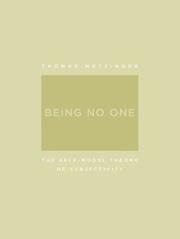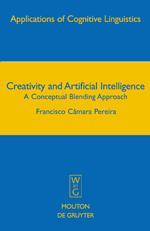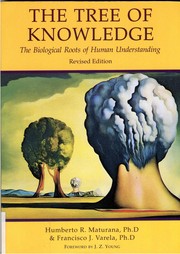Being No One - The Self-Model Theory of Subjectivity by Thomas Metzinger - ISBN 0262633086 - The MIT Press 2004
Motivation
See The Ego Tunnel + watched his 2005 Being No One UC Berkeley conference + BBC documentary based on Video Ergo Sum: Manipulating Bodily Self-Consciousness (including Olaf Blanke, Science 2007)
Pre-reading model
Draw a schema (using PmGraphViz or another solution) of the situation of the area in the studied domain before having read the book.
Reading
- 1 Questions
- problematic and resulting plan (p1)
- 2 Tools I
- conceptual tools as models (p13)
- 3 The Representational Deep Structure of Phenomenal Experience
- definitions and numbered constraints
- starting with 3.2.1 on Global Availability
- Global Availability
- Activation within a window of presence
- Integration into a coherent global state
- Convolved holism
- Dynamicity
- Perspectivalness
- Tranparency
- Offline activation
- Representation of intensities
- "Ultrasmoothness": The homogeneity of simple content
- Adaptivity
- 4 Neurophenomenological Case Studies I
- debugging the mind (p213)
- studying limit cases allow to test the validity of the proposed theory and extract information from the problem
- 5 Tools II
- building upon the conceptual tools proposed during chapter 2 but focusing on self-representation (p265)
- "The phenomenal self can now be regarded as a weapon, developed in a cognitive arms race" (p273)
- 6 The Representational Deep Structure of the Phenomenal First-Person Perspective
- phenomenal self-model (PSM)
- phenomenal model of intentionality-reaction (PMIR)
- proposal of neuromatrix (Melzack), ontomatrix, phylomatrix, ... (p357)
- From the gate to the neuromatrix, Melzack 1999
- syntactic definitions (p398 to 402)
- "Conscious human beings are <<mobile points of view>> (Brinck and Gardenfors 1999, p. 101)." (p406)
- "The PMIR is what builds the bridge to the social dimension." (p420)
- 7 Neurophenomenological Case Studies II
- "The humain brain opens up a vast computional space, and a certain partition of this computional space is now unoccupied: no computional resources are needed to process information related to the amputated limb and to activate the respective part of the self-model. It also seems safe to say that the humain brain allocates computional resources in a comptitive, evolution style." (p475)
- "Self-models can be viewed not only as tool but as organs as well. A self-model is an abstract organ." (p522)
- "Emotions represent "logic of survival" (as ,e.g., Damasio 1999 puts it), and the emotional seldf-model embodies this logic." (p523)
- 8 Preliminary Answers
- "The new phenomenal property of personhood could now start to unfold its functional profile. Because it made this radically new information globally available for deliberate action control, for linguistic report and communication, for self-ascription and critical discussion, it was now possible for us to also share this information. Our PSM allowed us to pool our cognitive resources." (p601)
- "the human PSM was the decisive neurocomputational tool in the shift from biological to cultural evolution." (p601)
- especially for pedagogy and education
- "One man's primitive is another man's high-level theoretical entity." (p605)
- mention of GOFAI (p615)
- last pages (before Being No One) on basically the AI critics on the ethical basis of suffering
- last paragraph on constantly confusing oneself being itself a pun as there is no self to confuse in the first place
- opening on the ability of someone to go further
- very close to the Berkeley talk
Tools used in the formalization
See BeingNoOne for the others notes.
Chapter 3 - Tools I
- Mental Representation: RepM(S, X, Y)
- Introspection1 "external attention", with attention penetrability
- Introspection2 "consciously experienced cognitive reference", with cognitive penetrability
- Introspection3 "inward attention" and "inner perception", with attention penetrability
- Introspection4 "consciously experienced cognitive self-reference", with cognitive penetrability
- Phenomenal Representation: RepP (S, X, Y)
- Mental Simulation: SimM (S, X, Y)
- Mental Representation: RepM <-> Sim`M (W0, S, X, Y) ( Mental Simulation: Sim`M (W, S, X, Y) )
- Phenomenal Simulation: SimP (S, X, Y)
- Mental Presentation: PreM (S, X, Y)
- Phenomenal Presentation: PreP (S, X, Y)
Chapter 5 - Tools II (focusing on self-representation)
- Mental Representation: RepM(S, X, Y) mentioned again
- Box 5.1, p266 but mentioned earlier in Chapter 3 - Tools I
- Mental Self-Representation: S-RepM(ST, X, R)
- Phenomenal Self-Representation: S-RepP(ST, X, R)
- Mental Self-Simulation: S-SimM(ST, X, R)
- Phenomenal Self-Simulation: S-SimP(ST, X, R)
- Mental Self-Presentation: S-PreM (S, X, Y)
- Phenomenal Self-Presentation: S-PreP (S, X, Y)
Chapter 6 - The Representational Deep Structure of the Phenomenal First-Person Perspective
Syntactic definitions (p398 to 402)
- I* content of the conscious, current transparent model of the self
- [I am certain that I* exist] active phenomenal content
- <I> current conscious thought is a component of the speaker's self-model
- <I*> transparent partition of the self-model
- [I*] content of the transparent self-model
- [I* exist] decisive property of the transparent self-model
Additional key concepts
- State-space semantics (SSS) introduced by Churchland (1986) p112
- active externalism (AE) introduced by Andy Clark and David Chalmers (1998) p112
- global workspace theory (GWT) introduced by Bernard Baars (1988) p120
- highest-order binding (HOB) introduced by Meztinger (1995) p137
- functional cluster index (CI) introcued by Edelman and Tononi (1996) p141
- "To have an integrated, globally coherent model of the world means to create a global functional cluster, that is, an island of maximal causal density within one's own representational system." p141
(import from ReadingNotesBeingNoOne)
See also
Overall remarks and questions
- does it provide a formalization that can be used to do make your own self-model?
- position toward Simulacre and Simulation by Baudrillard?
- not mentionned in Being No One
- explictly thanking Francisco Varela in the Acknowledgments
- Am I an API to myself?
- could transparency be compared with the
- proxy design pattern?
- interface of an API?
- would data flow programming encounter the same limitations?
- i.e. the inability for a process to study its sub-processes live simply because of their speed of execution
- http://www.AlainCardon.net work on "génération de faits de conscience artificiels avec intentionnalité"
- also mentioning ethical questions
Synthesis
So in the end, it was about X and was based on Y.
Critics
Point A, B and C are debatable because of e, f and j.
Vocabulary
(:new_vocabulary_start:)
new_word
(:new_vocabulary_end:)
Post-reading model
Draw a schema (using PmGraphViz or another solution) of the situation of the area in the studied domain after having read the book. Link it to the pre-reading model and align the two to help easy comparison.
Categories
Back to the Menu
Other read books linking to the BeingNoOne page :
Back to the Menu
 Fabien Benetou's PIM
Fabien Benetou's PIM










